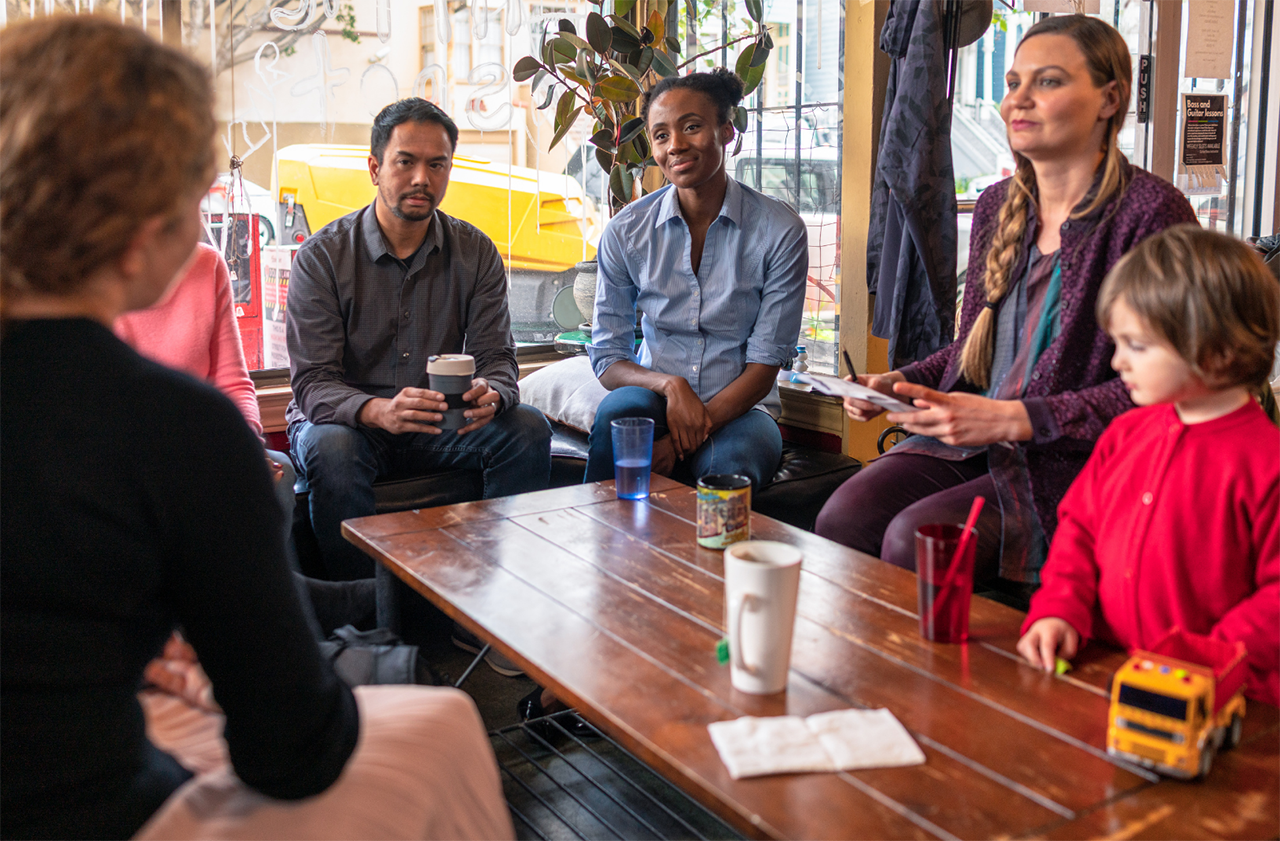COVID has been a game changer when it comes to family challenges. Today, the work/family life balance may literally be a parent balancing a child on their lap while working from home. Parents are improvising with childcare, homeschooling, remote work, and even with inflation on food and gas prices. There is no shortage of stress which can lead to instability and irritability; making it difficult to manage emotions and respond effectively to the demands of caregiving. Fortunately, there are resources to help families and other caregivers through these struggles and more. This is the topic of the latest episode of the “Power of Prevention” podcast presented by the Partnership @drugfreeNH. 
Nathan Fink with the New Hampshire Children’s Trust and Michelle Lennon with Greater Tilton Area Family Resource Center (GTAFRC) join host Christin D’Ovidio to explore how communities can better support young families. They share tips to help parents and other caregivers positively cope with stress and deescalate tense situations.
Sometimes, when we are at our worst because of stress, we unintentionally expose our children to situations that may scare or worry them, particularly when we lose control. Nathan Fink brought it home by sharing a personal story about a time when he was feeling on the verge: “I had a messy house that I had to clean up before my wife, who works nights, got home. I had more work to do for my job,” said Fink. “And my youngest son just would not go to bed. I caught myself, my stress level, escalating and escalating and escalating and I couldn’t deescalate. I didn’t know what to do.” Because Nathan knew strategies to scale down his stress, he was able to manage.
Both guests expressed concern about the increase of substance misuse since the beginning of the pandemic. Far more adults self-report substance use as a way of coping with stress or emotions since the first COVID related shutdown. RAND Corporation found that the overall frequency of alcohol consumption increased by 14% among adults over age 30, compared to the same time last year. The increase was 19% among all adults aged 30 to 59, 17% among women and 10% among non-Hispanic White adults. This survey also found women have increased their heavy drinking episodes (four or more drinks within a couple of hours) by 41%*. Women have shouldered the brunt of the pandemic with limited childcare options, disrupted school schedules and remote work. This problematic drinking can have harmful physical, emotional and mental health consequences. Fortunately, there are alternative means of coping. This is where family resources can help.
Family resource centers provide parent education programs that map out ways for caregivers to reduce tensions and negative responses when dealing with children. This is key because positive early childhood experiences are critically important for children to grow into healthy adults and avoid problematic substance use later in life.
 “These services are not for bad parents. They’re really about being a better version of what you want to be. I don’t think there is a parent out there that grows up saying, ‘I want to be a bad parent.’ I think most of us want to be good parents and sometimes maybe we don’t have the resources we wish we had for that. By going through some of those classes, I realize that it wasn’t so much the resources that I needed, it’s a change of mindset around a lot of different things,” said Fink.
“These services are not for bad parents. They’re really about being a better version of what you want to be. I don’t think there is a parent out there that grows up saying, ‘I want to be a bad parent.’ I think most of us want to be good parents and sometimes maybe we don’t have the resources we wish we had for that. By going through some of those classes, I realize that it wasn’t so much the resources that I needed, it’s a change of mindset around a lot of different things,” said Fink.
Many communities across the state have worked together to provide resources for families. In the Lakes region GTAFRC, law enforcement, churches, and other non-profits groups have collaborated to provide various ways of helping young families without judgment. “Granite State resilience is alive and well,” said Fink.
In the Lakes region, at least five police departments are creating adverse childhood response teams. These teams offer referrals for families to begin working with family support specialists whenever children are present at any scene that has required a police response.
GTAFRC works with individual families to find out how to reduce the stress in their home. “We find out what barriers families might be facing to have a healthy home. And sometimes it’s not what you think. Sometimes a parent is just pulling their hair out because they can’t pay the bills,” said Lennon. “We’ve done a lot of things like helping pay an electric bill or doing car repairs or paying for a camp that a parent necessarily may not be able to afford because we don’t want those healthy social connections to be the thing that goes off the table. We know long-term that camp could be the thing that makes that kid okay. It’s been huge.”
*Supporting Healthy Lives During the COVID-19 Pandemic: Alcohol Consumption Brief, Feb 2021
Debbie Love, Consultant, JSI Research & Training Institute, Inc.
By day, Debbie Love works at JSI Research and Training Institute, Inc., to get the word out about prevention on a variety of public health issues specific to our youth, oral health, immunization, substance misuse, homelessness, and aging, to name just a few. In her free time, she is a published poet and author, focusing her writing on humorous accounts of her everyday life to share with the world, while seeking opportunities to give back to local businesses in her community through the sales of her children’s book. Debbie lives in Chichester, NH, with her husband, children, and very spoiled rescued dogs and cat.

